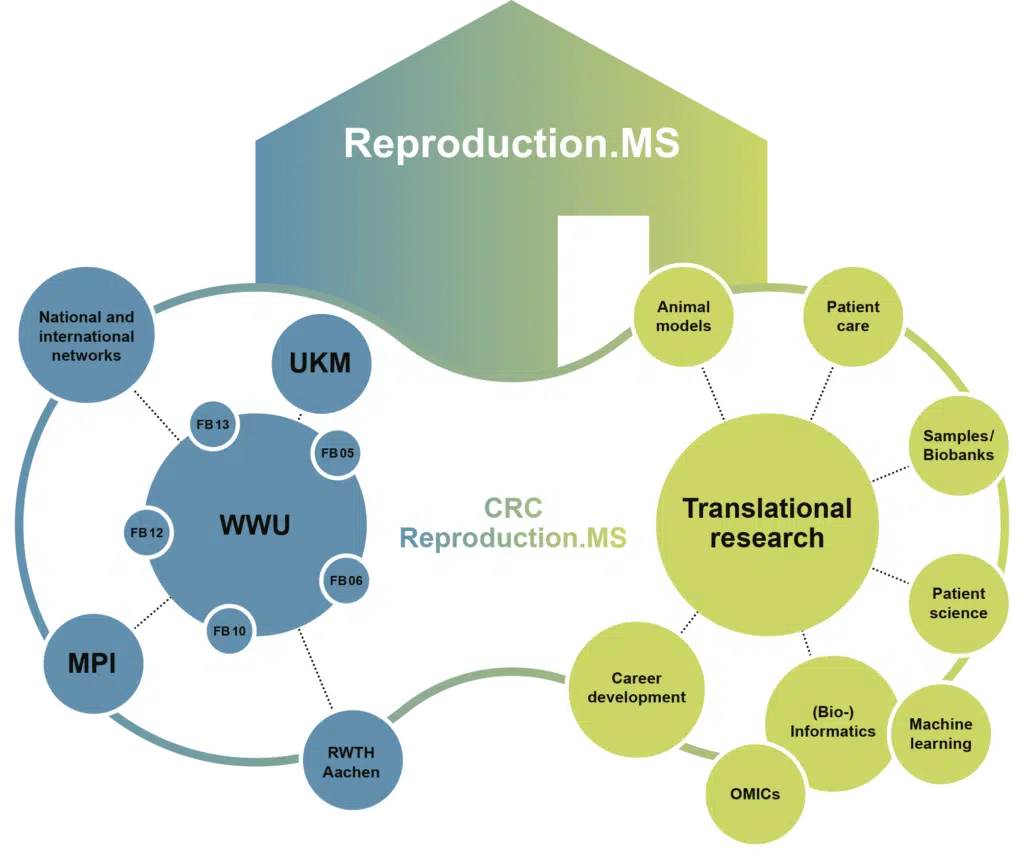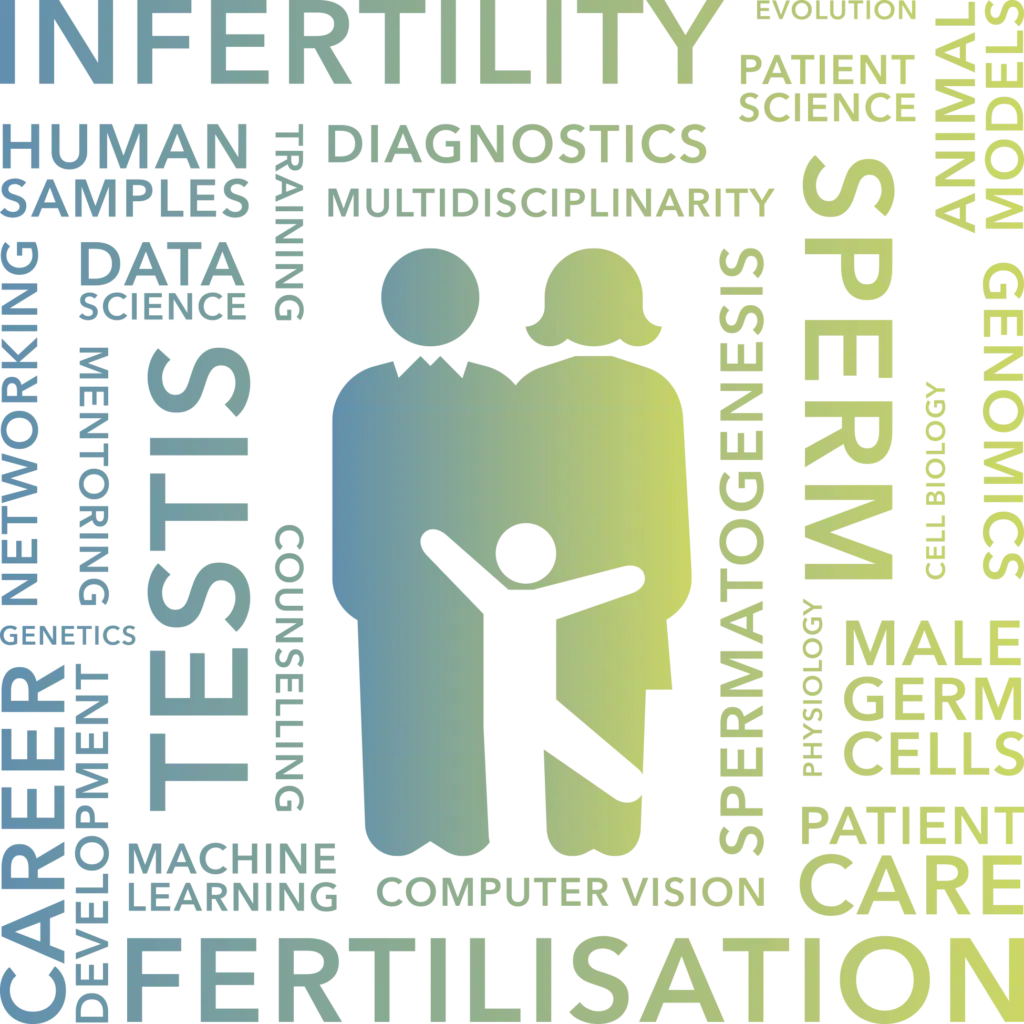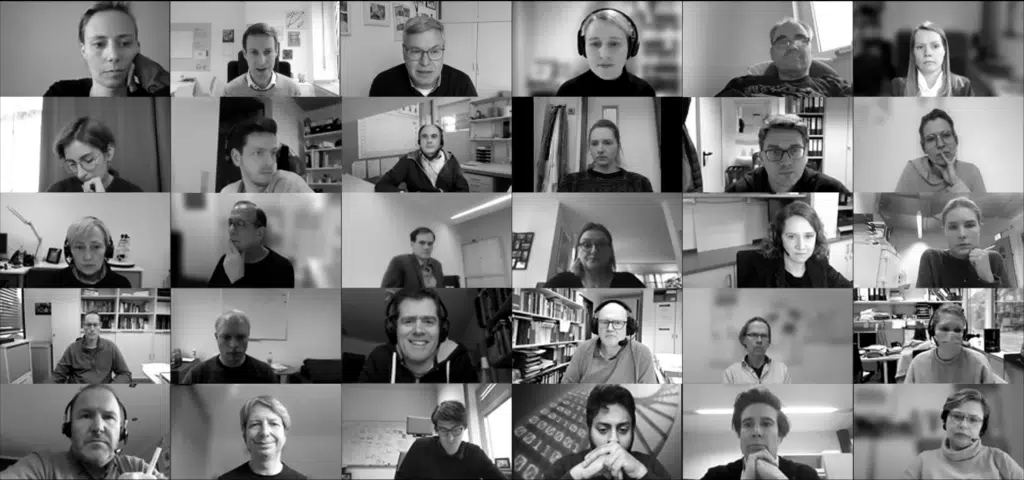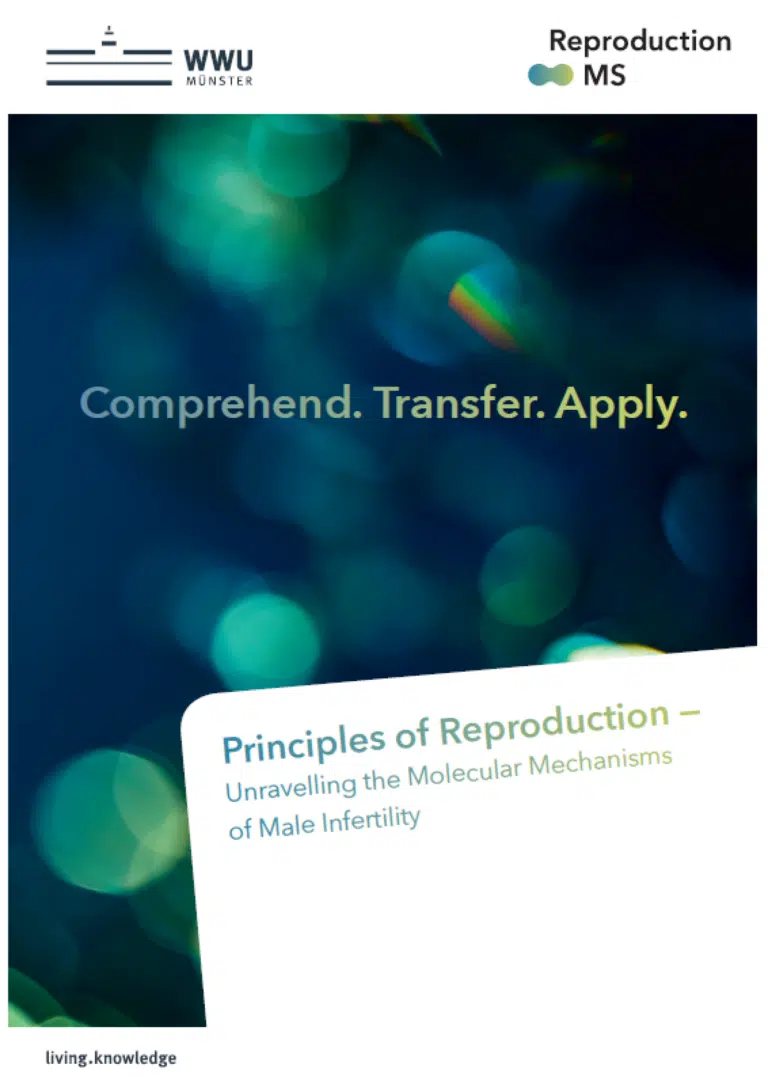Reproduction.MS
Reproductive science in Münster - looking back

Research on reproduction has a long history in Münster – beginning with the DFG’s research group RU1041 ‘Germ Cell Potential’ in 2008, numerous collaborative projects were to follow. The initiatives addressed open questions, conducted basic research, and implemented clinical diagnostics in order to provide new insights and innovation in the field of reproduction research. Common to all projects was their focus and dedication to clinical relevance and applicability – that is, acknowledging the person behind the science.
We consider the CRC initiative the next logical step along the journey.
Reproduction @Münster
Our CRC initiative is not only built on pre-existing scientific and technological networks, thereby profiting from well-established structures common to Münster’s flourising research landscape.
Reproduction.MS rather strives to integrate, cultivate, and enhance its scientific grounds, representing a flagship for inter-faculty research collaboration between basic research and clinic. The schematic to the right illustrates the linkages and multidisciplinarity inherent to the CRC: Reproduction.MS as the ‘overarching umbrella’ embracing its ‘foundation’.


#reproductionMS
The individual research projects focus on testis function, germ cells, and sperm as well as on fertilization and early-stage embryonic development. Over the course of three funding periods, this array shall be broadened to include research topics closely related to the CRC’s starting point, for example sperm-induced ovary activation, embryonic development, developmental defects, and failed implantation.
The key words listed in the schematic provide an overview of the foci and goals of our research.
Focus meeting

Intense scientific exchange, focus, and – first and foremost – teamwork are the main prerequisites for accomplishing our vision. We intend to reach this goal through joint workshops, far-sighted strategic planning, and accompanying measures such as monthly seminars.
By intensifying our long-term efforts in the field of reproductive science, we strive to understand the molecular pathomechanisms of male infertility in order to gain fundamental insight into the underlying principles of reproduction and subsequently translate our findings into the clinic to improve patient care.
